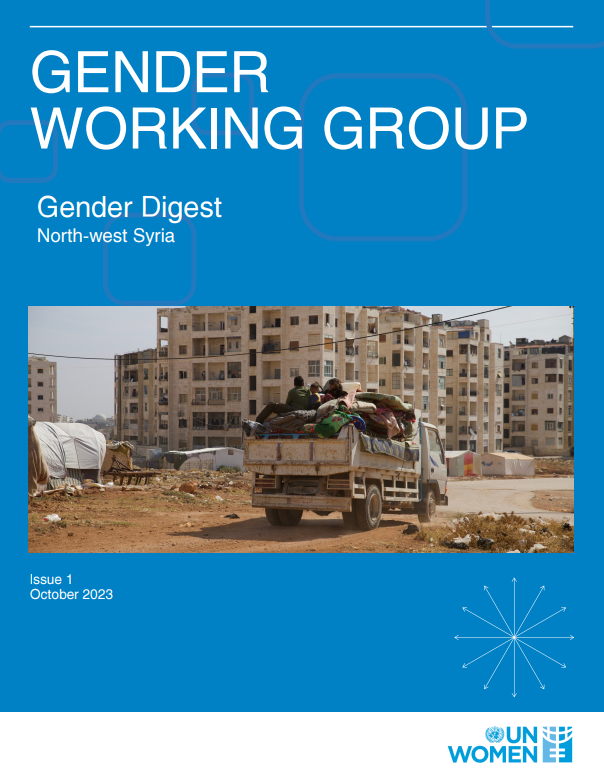
Gender Working Group - Gender Digest North-west Syria

Issue 1, October 2023
UN WOMEN POST-EARTHQUAKE GENDER ANALYSIS
Through this assessment, UN Women sought to understand the specific needs and perspectives of women, girls, men and boys affected by the earthquakes. The objective of the study is to inform a gender-responsive humanitarian response that ensures equal access to essential services, prioritizes the safety and protection of women and girls, and addresses the unique needs of the impacted population in the affected areas. From the detrimental impact on shelter and housing conditions to the heightened risks of gender-based violence (GBV), this assessment underscores the critical importance of prioritizing the needs of women and girls.
The assessment produced original and baseline data for the region through a survey with women and men in the impacted households. Previous and ongoing shifts in the population reflect the forced displacement, ongoing since 2011, that has resulted in complex demographics, social relations and pressures on limited economic resources. The analysis employed an intersectional lens to identify and understand the complex dynamics and multiple factors contributing to the distinct experiences and challenges faced by the affected population. UN Women gender analysis link: here
THE EFFECTS OF BOMBING AND DISPLACEMENT ON WOMEN
On October 12th, Equity and Empowerment issued a position paper on the effects of the recent escalation of hostilities in north-west Syria based on individual meetings conducted by Equity and Empowerment, through the field research team, physically with women from various areas of displacement, which included northwest Idleb and the western countryside of Aleppo, in addition to a group of workers in the medical sector and a group of activists within the current response phase.
The paper highlights the multifaceted impact of bombing and displacement on women, delving into their health, psychological well-being, social dynamics, economic stability, and legal circumstances.
Furthermore, it offers vital recommendations for the emergency responses to be sensitive to the specific needs of women.